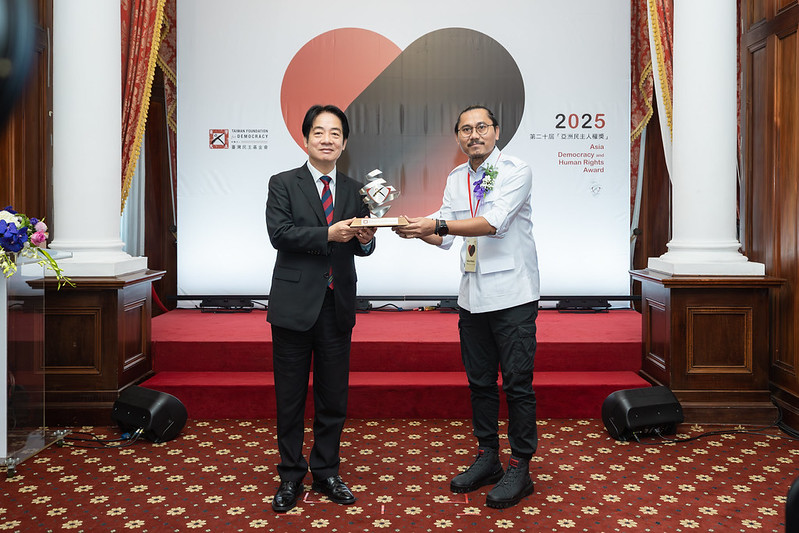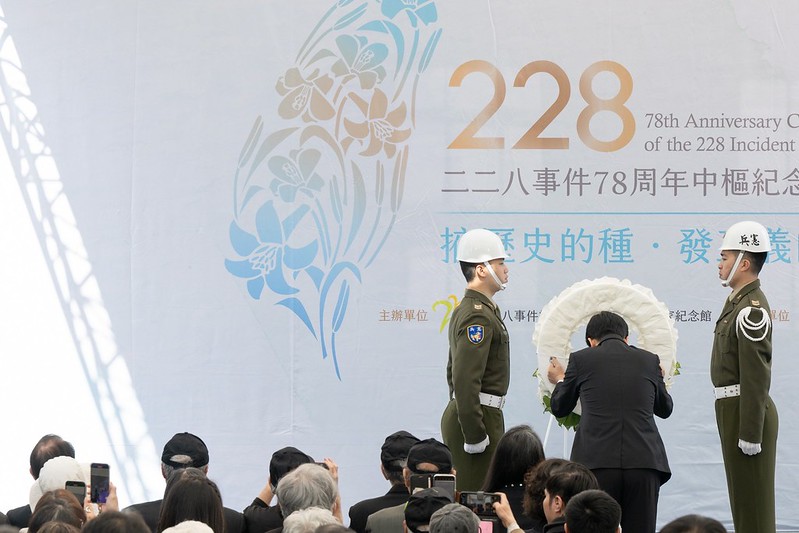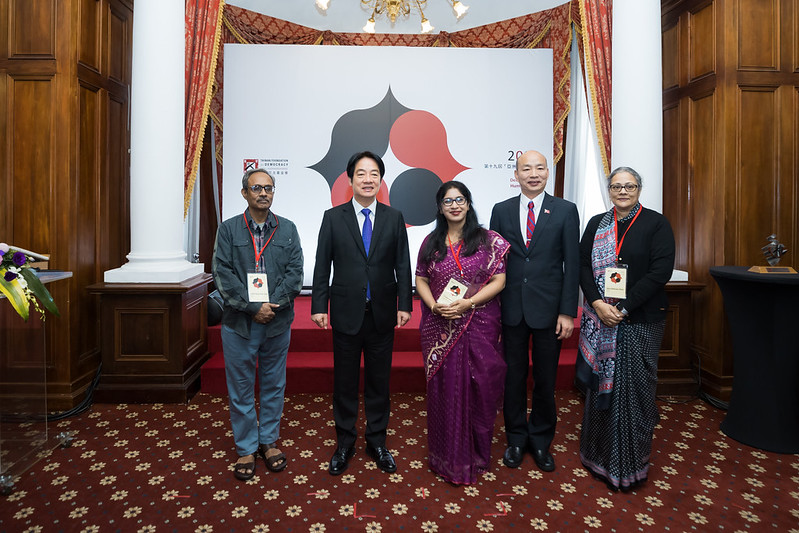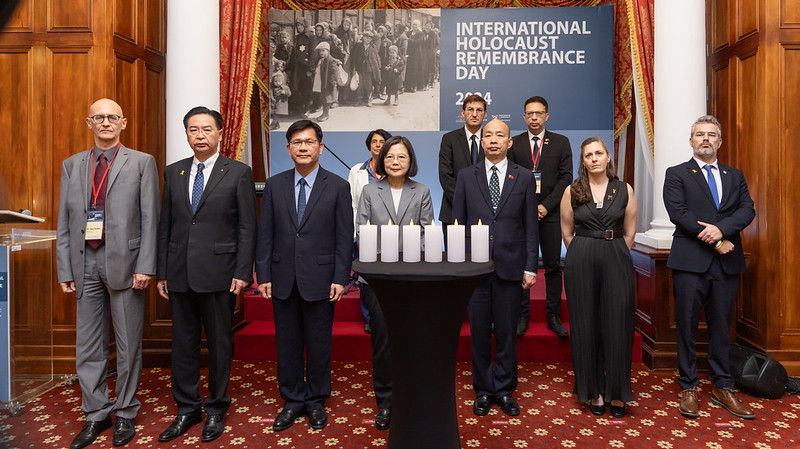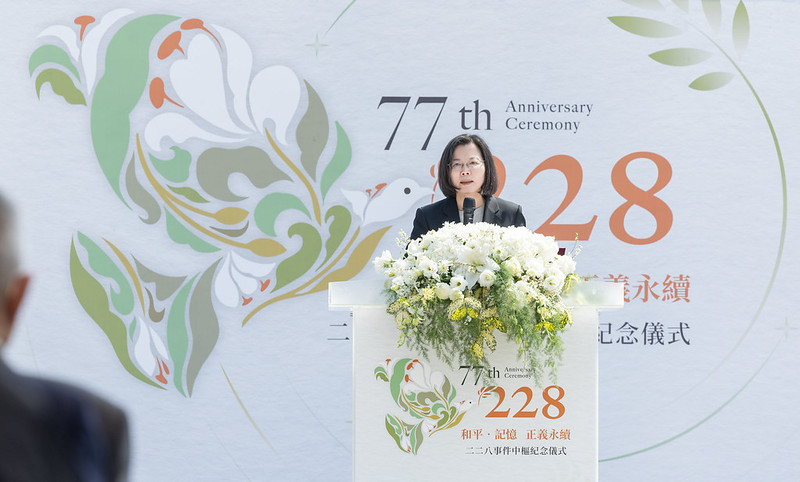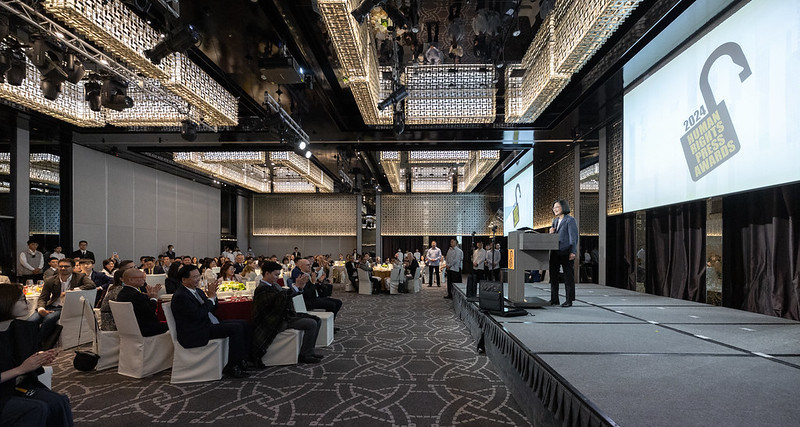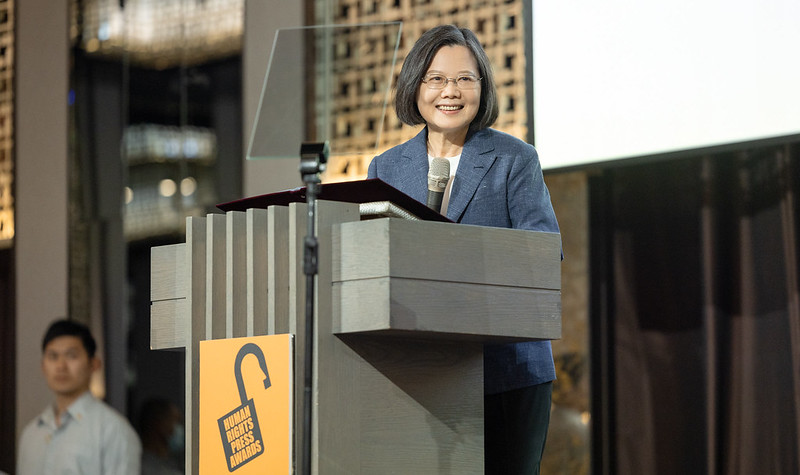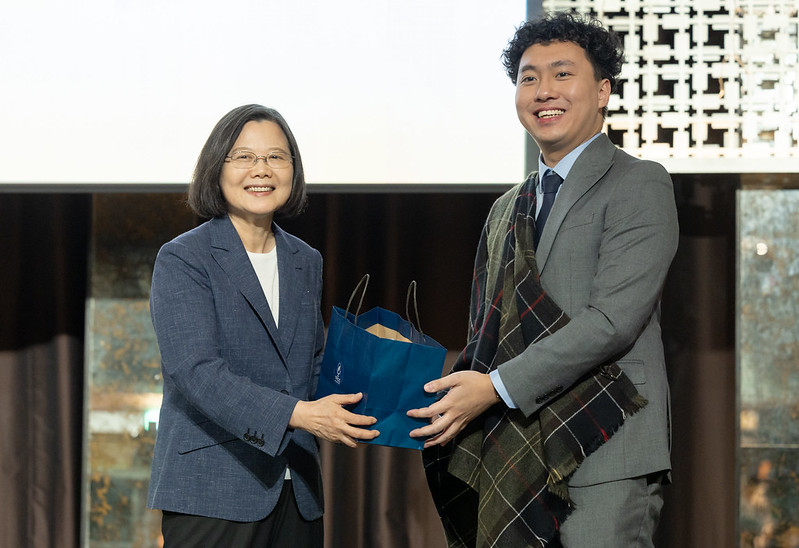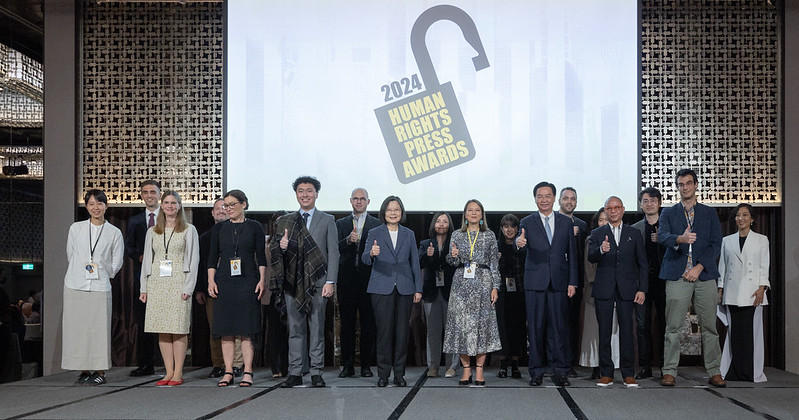News & activities
 News releases
News releases
On the evening of May 10, President Tsai Ing-wen attended the 2024 Human Rights Press Awards ceremony. In her remarks, President Tsai thanked the media for reporting on and bringing awareness to many important human rights issues. The president stated that Taiwan remains committed to advancing human rights. In 2019, she said, Taiwan became the first Asian country to legalize same-sex marriage, and in the following year, we established the National Human Rights Commission to better monitor and secure human rights protections at home. The president also stated that in 2022, Taiwan rolled out our first National Human Rights Action Plan, and in February, the Executive Yuan passed the UN International Convention for the Protection of All Persons from Enforced Disappearance, marking another major milestone for Taiwan’s human rights development, achieved by our people and government working together.
President Tsai stated that Taiwan now is rated as one of the freest countries when it comes to press freedom, and is an important hub for international media. This growing presence of international journalists, she said, is evidence that Taiwan is a country where transparency, freedom of expression, and easy access to information are ensured. The president said she is looking forward to Taiwan continuing to be the home for free press in Asia, and that Taiwan will continue to stand up for democracy, freedom, and human rights, and endeavor to build a world where all can live in dignity.
A transcript of President Tsai’s remarks follows:
It is my pleasure to join you all today at this important awards ceremony to congratulate the recipients of the Human Rights Press Awards. I am also happy about the fact that this event is being held in Taiwan for the very first time.
Your presence here is testament to Taiwan’s hard work on safeguarding media freedom and human rights. This event is also a demonstration to the world just how deeply Taiwan values these important pillars of democracy.
I would like to thank the organizers of this event: Human Rights Watch, the Walter Cronkite School of Journalism and Mass Communication at Arizona State University, the foreign correspondents’ clubs of Taiwan and Thailand, and the Reynolds Center for Business Journalism. I applaud you for taking up this important mission of maintaining this award at a time when journalists are under unprecedented pressure and repression in carrying out their duties.
Tonight, I want to congratulate the recipients of the Human Rights Press Awards.
Congratulations to you all, and thank you for reporting on, and bringing awareness to many important human rights issues.
This includes the persecution of religious minorities in Myanmar, the rising number of suicides among Afghan women living under Taliban rule, and the Chinese government’s treatment of White Paper protesters, who stood up against COVID-19 lockdowns.
In an era of rising authoritarianism, with an increasing number of autocratic leaders and disinformation campaigns, your role as journalists in exposing the truth is more critical than ever. And through a variety of forms, such as writing, photography, video, audio, and multimedia, your courage and effort not only inspire us. You also help raise awareness in the international community, and prompt us to take action to tackle these pressing human rights issues. More importantly, by exposing injustices, you give hope to those whose stories that you told.
In Taiwan, we experienced the injustices of authoritarian rule, under nearly four decades of martial law. Some even sacrificed their lives for media freedom.
Through our hard work, Taiwan now is rated as one of the freest countries when it comes to press freedom. In Freedom House’s report on Freedom in the World this year, Taiwan scored 94 out of 100. Under the Civil Liberties category, Taiwan received a perfect score for Freedom of Expression and Belief. Our news media is described as “generally free, reflecting a diversity of views and reporting aggressively on government policies.” Of course, in a critical way.
According to the Economist Intelligence Unit’s Democracy Index 2023, Taiwan ranked 10th in the world and first in Asia, and was one of only 24 countries in the world evaluated as a “full democracy.” And, in this year’s World Press Freedom Index by Reporters Without Borders, Taiwan ranked 27th in the world, rising eight spots from last year.
Despite these achievements, in recent years, there have been authoritarian forces targeting the freedom we have worked so hard to achieve.
We found that there are constant attempts from authoritarian forces to influence our media environment. There are also well-funded, large-scale disinformation campaigns making extensive use of internal and external propaganda to influence Taiwan’s democracy.
The freedoms enjoyed by Taiwanese citizens on the internet, media, and social media are now being utilized to erode Taiwan’s democracy.
Eleven years in a row, Taiwan has exceeded every other country in the world, on the amount of false information disseminated within its borders by other governments, according to the research by V-Dem. There are several goals of such campaigns. They want to further polarize our society, pitting citizens against one another. They also want to erode trust in democratic institutions and government officials. They aggressively promote the narrative that democracy is chaotic and inefficient. Such disinformation campaigns have become one of the most difficult challenges for democracies like Taiwan.
Moreover, the rise of AI has benefited all of us. On the other hand, this rise has also allowed disinformation to be generated and distributed at an unprecedented rate. This makes deterring it much more difficult. This also makes defending our right to know the facts all the more important.
A democracy has limited means to deal with disinformation campaigns. This is out of the concern of causing harm to freedom of speech, if measures are taken to limit, restrict, or control the free flow of information.
In Taiwan, in order to counter disinformation campaigns, we encourage all parts of our society to act together. As timeliness and transparency are keys to an effective defense against disinformation, the Taiwanese government holds news briefings and releases real-time official clarifications on a regular basis.
Taiwan’s vibrant civil society also contributes quite a lot to combat disinformation. Some publish thoroughly researched and detailed reports on disinformation campaigns. They also identify playbooks on authoritarian information manipulation. This is accompanied by media literacy lesson plans and offering education to citizens. The civil tech community has also developed chatbots for chat applications to make fact-checking much easier.
Other than countering information warfare from authoritarian regimes, Taiwan remains committed to advancing human rights. In 2019, we became the first Asian country to legalize same-sex marriage. The following year, we established the National Human Rights Commission to better monitor and secure human rights protections at home. And in 2022, we rolled out our first National Human Rights Action Plan, with the aim of continually improving human rights standards.
Although Taiwan is not a member of the United Nations (UN), we have voluntarily incorporated six international covenants on human rights into domestic law, and issued national reports on their implementation.
In February, the Executive Yuan passed the UN International Convention for the Protection of All Persons from Enforced Disappearance. This marked another major milestone for Taiwan’s human rights development, achieved by our people and government working together.
As the result of our work on safeguarding freedom, Taiwan is now an important hub for international media. In recent years, we have received increasing numbers of resident correspondents and visiting journalists from international media agencies. As of last month, Taiwan is home to 176 correspondents from 86 media outlets originating in 22 countries – this is roughly double the figure from 2016.
This growing presence of international journalists is evidence that Taiwan is a country where transparency, freedom of expression, and easy access to information are ensured. I am proud and looking forward to Taiwan continuing to be the home for free press in Asia.
Despite the new and growing challenges in the region, Taiwan will continue to stand up for democracy, freedom, and human rights. Now more than ever, it is essential that we unite and support one another, as we address these challenges together and endeavor to build a world where all can live in dignity.
I want to close by thanking you all again for joining me to honor the recipients of the Human Rights Press Awards. At a time when many journalists in Asia and from around the world must put their safety at risk for doing their job, you have our utmost respect for your professionalism and courage. Once again, congratulations to all the award-winners.
Also in attendance at the event were European Economic and Trade Office Head Filip Grzegorzewski and British Office Taipei Representative John Dennis.
